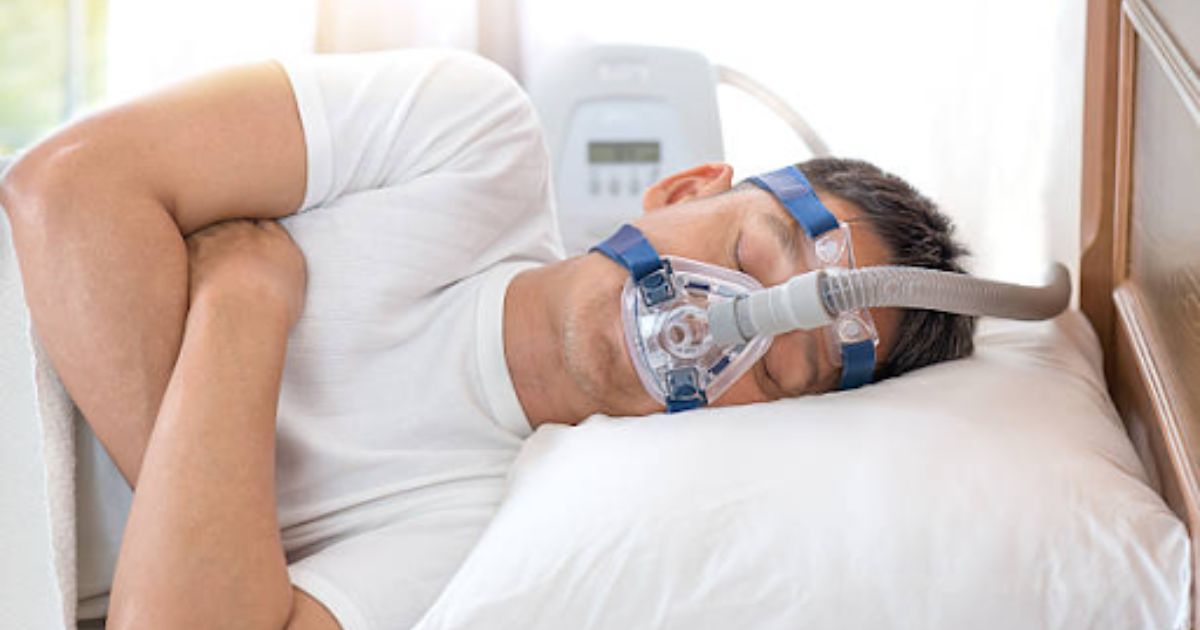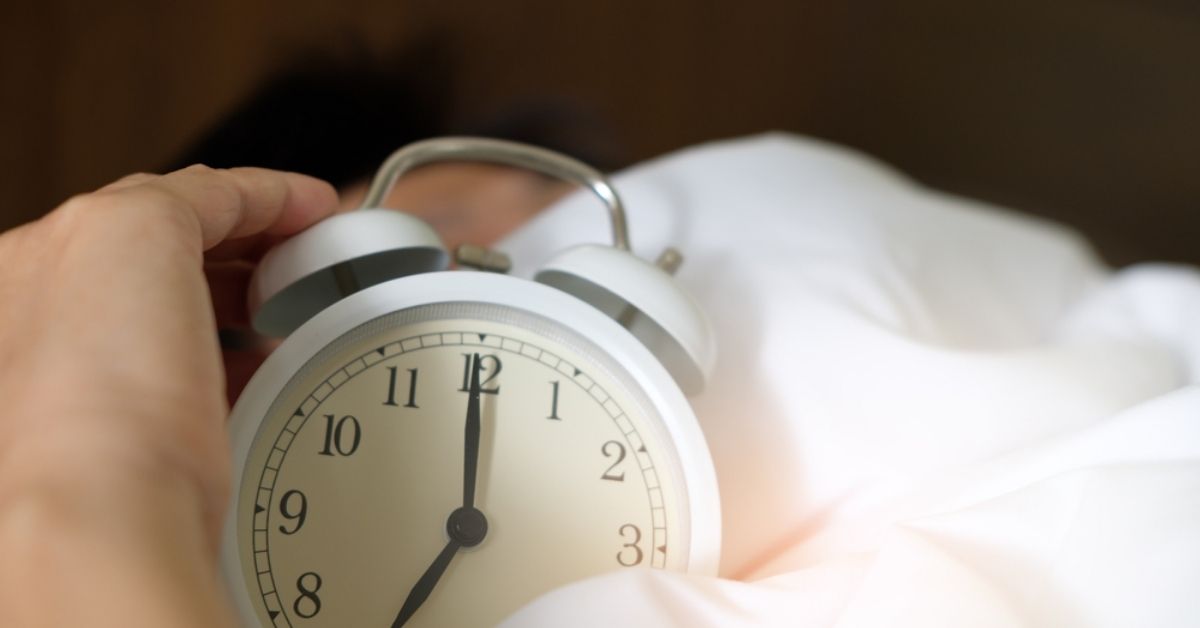Sleep apnea is a significant yet often overlooked health concern that affects millions of individuals around the world. Aside from the immediately noticeable side effects of a poor night’s sleep, it can pose a threat to a person’s health in a variety of ways, especially if left untreated.
It is important that you are aware of debilitating sleep disorders so you know when to seek help. In this blog, our medical experts explain what you should know about this sleep disorder, including sleep apnea symptoms and risk of hypertension.
This content covers the nature of sleep apnea, its classification as a sleep disorder, its intricate connection with other medical issues like hypertension, and addresses commonly asked sleep apnea questions. This info will help you get your sleep quality back to a healthy and productive level.
Table of Contents
- What is Sleep Apnea
- What Are the Symptoms
- Types of Sleep Apnea
- The Link Between Sleep Apnea and Hypertension
- Health Risk Factors from Hypertension Caused by Sleep Apnea
- The Impact On Your Body
- Sleep Apnea FAQ
- How to Manage Sleep Apnea
What is Sleep Apnea?
Sleep apnea is a prevalent sleep disorder that stealthily disrupts the peace of our bedrooms, bringing with it a myriad of potential health risks. It interrupts the tranquility of sleep with repeated breathing pauses, similar to frequent and frustrating pauses in a movie. This erratic breathing pattern not only causes annoyance but also significantly deprives you of the essential rest your body needs.
What Are the Symptoms?
You might not be fully aware of sleep apnea, so it is important that you know what the symptoms are. They can include any combination of the symptoms listed below.
Intermittent Breathing
The most noticeable sign is irregular breathing during sleep, where the breathing pattern unpredictably starts and stops.
Excessive Daytime Sleepiness
Individuals often experience overwhelming fatigue during the day, despite spending adequate time in bed.
Morning Headaches
Often a consequence of fluctuating oxygen and carbon dioxide levels in the blood due to disrupted breathing.
Difficulty Concentrating
The lack of restorative sleep leads to decreased cognitive function, affecting concentration and decision-making abilities.
Irritability Caused by Sleep Deprivation
One of the symptoms is irritability. Mood disturbances are common due to chronic sleep deprivation.
Types of Sleep Apnea
Apnea is broken down into several distinct types. We’ve outlined the summary of each type below.
Obstructive Sleep Apnea (OSA)
The most common form, Obstructive Sleep Apnea (OSA), is caused by a physical blockage of the airway, typically when throat tissues collapse during sleep. This type is particularly common in individuals who are overweight and those with specific physical attributes that reduce upper airway size.
Central Sleep Apnea
Unlike OSA, Central Sleep Apnea involves a failure of the brain to signal the muscles that control breathing, often occurring in individuals with certain medical conditions or those using specific medications.
Complex Sleep Apnea Syndrome
Also known as treatment-emergent central sleep apnea, this type is a combination of both obstructive and central apnea, presenting unique challenges in diagnosis and treatment.
The Link Between Sleep Apnea and Hypertension
Apnea, particularly Obstructive Sleep Apnea, is closely linked with hypertension, a common cardiovascular condition also known as high blood pressure. This relationship is critical because it underscores how sleep disorders can lead to serious systemic health issues.
Research Insights Hypertension and Sleep Apnea
Numerous sleep studies have shown that individuals with untreated apnea have a higher risk of developing hypertension. This risk is especially pronounced in those with more severe forms of the sleep disorder. Moreover, research indicates that effective treatments such as using Continuous Positive Airway Pressure (CPAP) therapy, can lead to significant improvements in blood pressure control, particularly in patients who have resistant hypertension (high blood pressure that is difficult to control with medication alone).
Health Risk Factors from Hypertension Caused by Sleep Apnea
Once you understand the risk factors that intertwine Obstructive Sleep Apnea (OSA) with hypertension, you’ll understand just how vital it is for their effective management and prevention before your condition gets worse.
- Obesity: A major contributor to OSA, excess body weight can obstruct the airway during sleep and increase cardiac strain, contributing to hypertension.
- Age and Gender: Both apnea and hypertension become more prevalent with advancing age. Men are generally at a higher risk for both conditions, though post-menopausal women also see an increased risk.
- Lifestyle Choices: Smoking, excessive alcohol use, and physical inactivity are known to elevate the risk and severity of both apnea and hypertension.
- Genetics and Family History: A family history of apnea or hypertension heightens an individual’s susceptibility to these conditions.
- Medical Conditions: Comorbidities like diabetes and heart disease are often associated with an increased risk of both apnea and hypertension.
Proactive management of these factors, including lifestyle modifications and medical interventions, is crucial for improving sleep quality and reducing associated health risks.
The Impact On Your Body
Apnea is a serious sleep disorder that can have severe effects on your body. Below are some of the impacts that sleep apnea can have.
Oxygen Deprivation
During apnea episodes, the body experiences pauses in breathing, leading to a drop in blood oxygen levels. This deprivation triggers a physiological response where the body attempts to compensate by increasing the heart rate and constricting blood vessels, thereby raising blood pressure.
Stress Hormone Release
The repeated interruptions in breathing cause the body to release stress hormones. These hormones, such as adrenaline and cortisol, contribute to an increase in heart rate and blood pressure, exacerbating hypertension.
Endothelial Dysfunction
Chronic apnea can lead to endothelial dysfunction, which is the impaired functioning of the inner lining of blood vessels. This dysfunction is a key factor in the development of hypertension and other cardiovascular diseases.
Cardiovascular Risk
The link between apnea and hypertension signifies an increased risk of other cardiovascular diseases, such as heart attacks and stroke.
Sleep Apnea FAQ
- Why is it Dangerous? Beyond disturbed sleep, apnea can lead to serious health issues such as heart problems, stroke, and complications with medications and surgeries. The repeated drops in blood oxygen levels increase cardiovascular strain.
- Is it Common? Yes, sleep apnea is a widespread sleep disorder but often goes undiagnosed due to a lack of awareness or recognizable sleep apnea symptoms.
- Understanding Hypertension: Characterized by high blood pressure, hypertension can lead to critical health problems and is often linked to unhealthy lifestyle choices.
- Management Strategies for Apnea: Effective management includes adhering to treatments such as CPAP machines, making lifestyle changes (like weight loss and quitting smoking), and maintaining regular health check-ups.
How to Manage Sleep Apnea
When it comes to this sleep disorder, effective management can be the key to preventing hypertension. Managing sleep apnea effectively is a preferred strategy for controlling blood pressure risks. This includes lifestyle modifications, adherence to CPAP therapy for OSA, and regular monitoring of blood pressure.
Why Early Intervention is Important
Recognizing and the problem early can be crucial in preventing the onset or worsening of hypertension, thereby mitigating the risk of more severe cardiovascular complications.
Seeking Professional Help
At Jacksonville Sleep Center, we recognize the critical importance of addressing sleep disorders for health and effective blood pressure management. We offer comprehensive sleep studies tailored to diagnose and treat apnea effectively. Our team of experienced healthcare professionals is dedicated to providing personalized care and treatment strategies, guiding you toward improved sleep and overall well-being.
If you’re experiencing sleep disorders, don’t hesitate to contact our sleep professionals. Embark on your journey toward restful sleep and enhanced health with our expert support.









